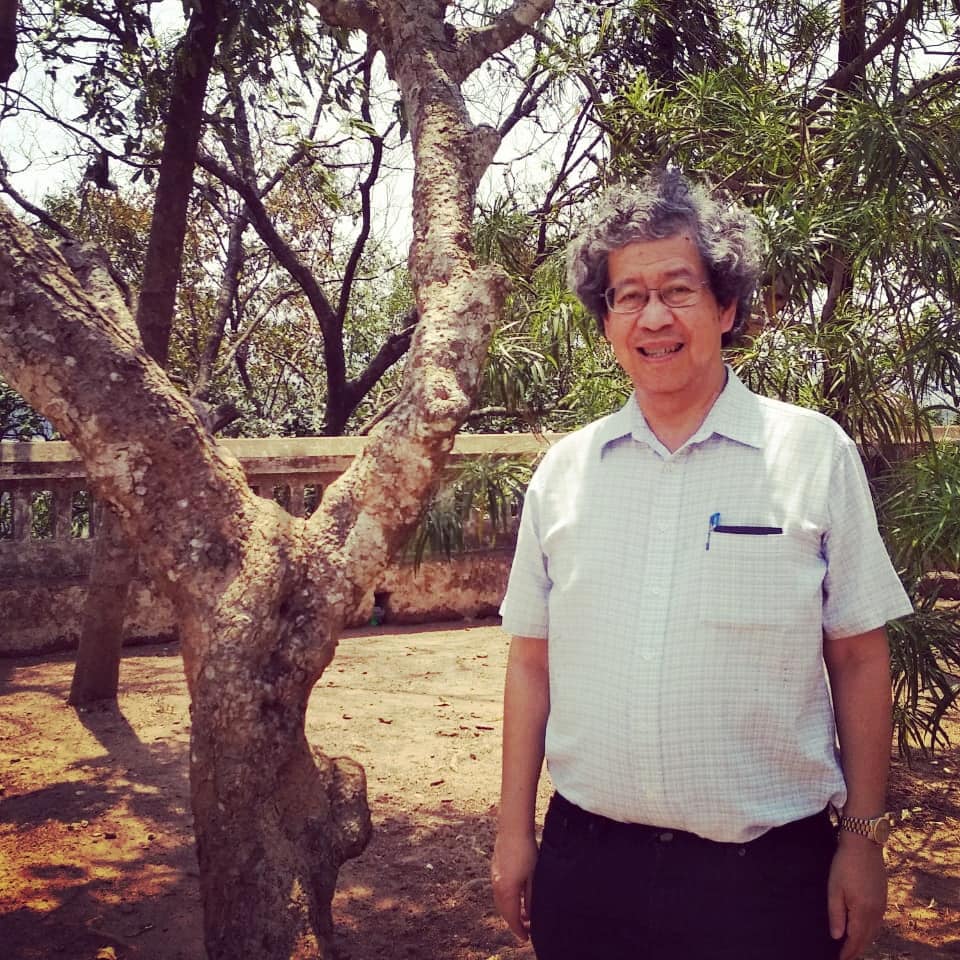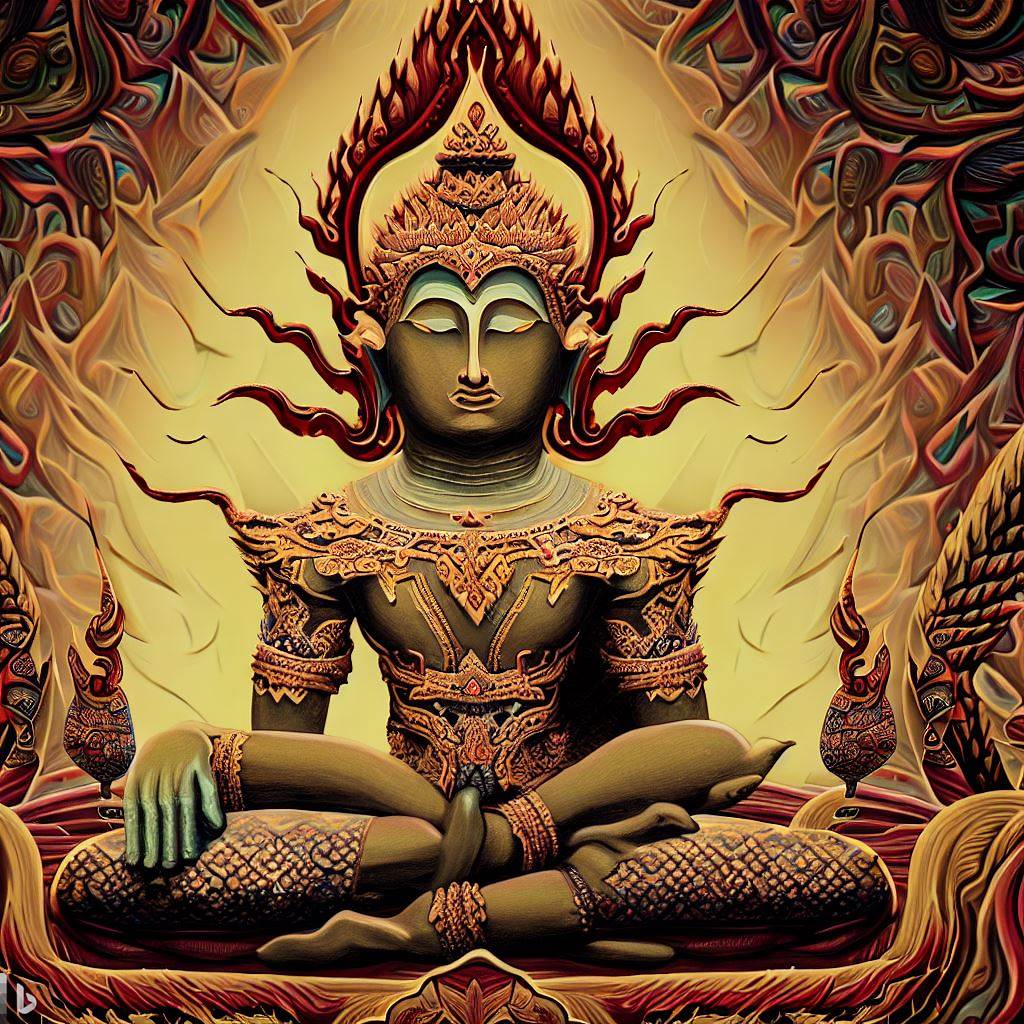Fortune or calamity? A Thai perspective on ChatGPT
Auriane van der Vaeren
September 18, 2023 | Reflections
Seemingly, wherever one finds itself, the public release of ChatGPT has engulfed the world in a generalised craze. Even though large language models (LLMs) were already in use—for instance for translation apps—ChatGPT managed to rouse lay curiosity and engage all in a prophesizing momentum about its societal implications. Today, language modelling technology essentially calculates “conditional probabilities [to make] unsupervised distribution estimation[s] from a set of [semiotic] examples”. It is because of this probabilistic output that questions arose about how LLMs could reshape our relation to generative content. This divinatory motion in the west is markedly characterised by a Manichean view that reduces ChatGPT's complexity to that of a duel between envisioning it either as a means of modernising society and extirpating it from its ills (the ‘technological fix’), or as the beginning of the end of critical thinking. But is such dualistic vision universal?
We here explore a Thai perspective with philosopher of technology, Professor Soraj Hongladarom from Chulalongkorn University (Bangkok, Thailand) [his quotes are identified by « »].

Professor Soraj Hongladarom [credit: Soraj Hongladarom]
Thailand’s sentiment towards AI: enthusiasm
Today, Thailand has one government-approved document framing the use of artificial intelligence (AI) for research and development, เรื่อง แนวปฏิบัติจริยธรรมด้านปัญญาประดิษฐ (Ethical Guidelines for Intellectual Invention). While this could be considered as under-regulation from a western perspective, it reflects in a way Thailand’s more optimistic vision of AI. And let us mind that optimism does not mean a thoughtless implementation of AI. For instance, public research organisations such as the Thai National Science and Technology Development Agency have their own internal ethics guidelines. As Soraj reveals, the Thai government seeks to boost enthusiasm to prevent a backlash against AI the same way it previously occurred against genetically modified organism technology. And it is successful—Thai civil society currently surfs on this wave of enthusiasm; « only a few private organisations express more caution ».
ChatGPT as a teaching and learning tool
Following Thailand’s collective optimistic vision of AI, so too it applies to public Thai universities, including Chulalongkorn University, where both professors and students are encouraged to implement AI in teaching and learning. ChatGPT is yet another tool for knowledge-making—another tool « to advance and facilitate the process of teaching and learning ». Which is not least of importance considering its utility as a tool for language improvement and grammatical correction and thus helps improve the English language levels of Thai students. Of course, Chulalongkorn is not dupe and is « aware of the pitfalls of ChatGPT as well as of the students’ ability to request the purposeful introduction of errors to fake the output as being written by a student ». However, Chulalongkorn's experimental approach noticeably paves the way to building a relation of trust between teachers and students. Additionally, this approach to digital literacy puts the Thai student generation in the vanguard of adopting a critical stance toward AI-generated content—clearly not minor a teaching outcome.
While ethical considerations are openly discussed, other aspects are downplayed. Such as matters of data privacy, confidentiality, and the inner statistical workings of LLMs—namely, that ChatGPT « fabricates content that has no human value, no empirical value ».
The Thai worldview as underpinning its enthusiasm?
Where western countries tiptoe the use of ChatGPT in teaching environments, one might wonder what makes Thailand, and neighbouring countries, to have such a forward-looking approach. There are various ways of engaging in this question, and while geoeconomic reasons might be one obvious vantage point, looking at Thailand’s metaphysical conception is yet another interesting such prism.
In Thailand, Theravāda Buddhism is the most practiced Buddhist school of thought. And the Abhidhamma is « recognised by most Theravādan scholars as the official philosophical and metaphysical position of Theravāda. At secular level, both Theravādan and Cartesian individuals perceive the world as composed of separate individual entities. But at an analytical level, Theravādan minds conceive all objects as composed of aṇu, itself composed of paramāṇu. Paramāṇu is the smallest material unit, which we can understand as similar to Democritus’ atom. Besides paramāṇu, there is void. It is the arrangement of the paramāṇus that make the objects ». But(!) the Abhidhamman conception does not consider these objects as strictly separate. « By conceiving the material substance and the mental substance as the two fundamentals constituting reality, the Abhidhamma does strictly differentiate these two substances, but they cannot be reduced to one another—they are not mutually separate, they cannot exist independently. Which is also why material attachment makes no sense, for material substance has no intrinsic value alone ».
Relying on AI to absolve society from its faults thus makes no sense in Abhidhamman thinking, because it does not understand AI as a given entity, separate from the human and therefore capable of either liberating humanity from its faults (solving our issues), or dooming it for eternity (bringing us to our end). Rather, AI becomes what one makes of it—the material substance co-becomes with mental substance. Hence, the Theravādan worldview does not strictly imply a non-dualist worldview.

Illustration of Theravāda Buddhism [credit: Microsoft Bing Image Creator]
Thailand’s stance vis-à-vis LLMs and AI is then perhaps not so much about metaphysical underpinnings but more about matters of trust—about trusting the other in bringing about the best of and for the world. A matter of trust that is nonetheless culturally embedded, for « a Theravādan Buddhist teaching (a Sutta) teaches that humanity originated from purely spiritual beings that had no material form and which one day came down and tasted the Earth’s soil. Because the soil tasted so good, these spiritual beings became incrementally attached and sensualised to the Earth. As such, by incrementally becoming flesh and blood, these spirits incrementally lost their light, their transparency, their transcendence. The idea is that the formation of societies and of civilisation originated from a fall rather than a progress » (contrasting with the Western metaphysics of Enlightenment). « It is only through an individual cultivation of enlightenment that one can get back to a spiritual state ». Theravāda Buddhism thus bears the foundational idea that light is within all human beings; it is not about worshiping an external deity to free us from our sins, but about cultivating light in oneself. We can thus understand why AI and ChatGPT are understood as tools for cultivation that are neither intrinsically good or bad.
Learning from the Thai perspective
Because the mutual irreducibility of the material and mental substances causes everything to be interconnected, regulating AI is not limited to AI but very much redefines society; as opposed to having ethical norms preceding AI developments, "[AI] technology provides a new ground from which ethical norms [can] emerge" (Hongladarom & Bandasak, 2023). In addition, in echoing a more trusting and therefore considerate relation to its student population, Thailand’s approach to ChatGPT not merely redefines society’s relation to generative content (our use of LLMs), but perhaps equally redefines the students’ relation to the government as it is the government that promotes the creation of a trusting relation between teachers and students.
Auriane van der Vaeren is Assistant Editor for Backchannels and currently an independent researcher located in Bangkok (Thailand) who looks into the incidence of technology and policy on the information society.
Published: 09/18/2023
